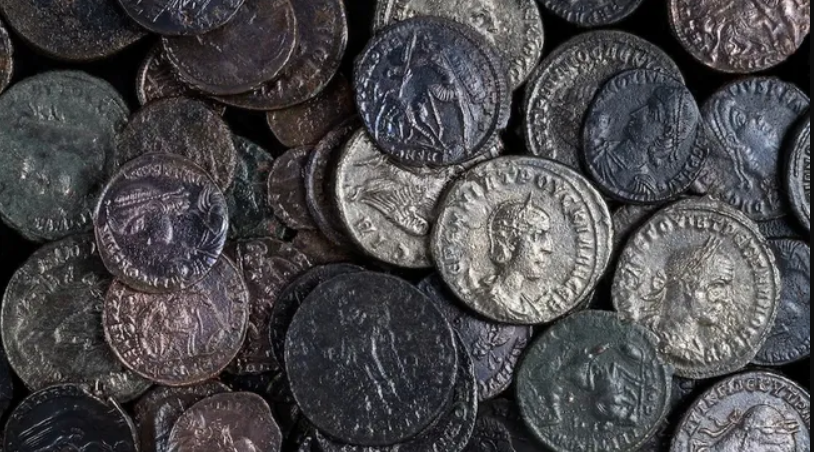News
1700-year-old coins from the time of the last Jewish revolt against Roman rule found in Israel. Photo
About a hundred coins dating back to 221-354 BC were found in Israel. The treasure, which dates back almost 1700 years, was discovered during excavations in the city of Lod.
Scientists assume that the coins were hidden in the midst of the last known Jewish uprising against Roman rule, and the discovery reveals new circumstances of those events. The details are reported by Live Science with reference to the Israel Antiquities Authority.
The 94 silver and bronze coins, minted between 221 and 354 BC, were discovered by archaeologists during excavations at the site of the recently discovered remains of a public building of the late Roman and early Byzantine period in the city of Lod (also known as Lydda), 20 km southeast of Tel Aviv. The city was renamed Diospolis during Roman rule over Israel."
The coins were found in the foundations of a building that had been destroyed to the ground, which, according to archaeologists Shahar Krispin and Mor Viezel, who conducted the excavations, "was home to the elders of the city."
They note that after the destruction of the Second Temple in Jerusalem, Lod was considered the most important Jewish center. And the extent of the destruction of the building, according to the researchers, reveals new information about the last known Jewish uprising against Roman rule, one of the centers of which was Lod.
"This building, destroyed to the very foundation, is a clear indication that the revolt was crushed by violence and brutality, and was not just a local uprising, as some previous studies have claimed. This is the only evidence so far of the scale and strength of this uprising in Lod, located in the center of the country," Krispin and Viezel of the Israel Antiquities Authority emphasized.
As for the coins themselves, the archaeologists suggested that the unknown owners "deliberately hid them" in the building's foundation to return and retrieve the treasure when the situation calmed down.
"It's essentially an emergency treasure, that is, a treasure that people hide in anticipation of a catastrophic event," Viezel said.
Most of the coins were minted during the period when the Jews revolted against the rule of Flavius Claudius Constantius Gallus. The uprising of 351-354 BC was brutally suppressed by Rome, and such Jewish cities as Lod, Tzipori and Tiberias were destroyed by Roman troops.
Only verified information is available on our Telegram channel OBOZ.UA and Viber. Do not fall for fakes!





























